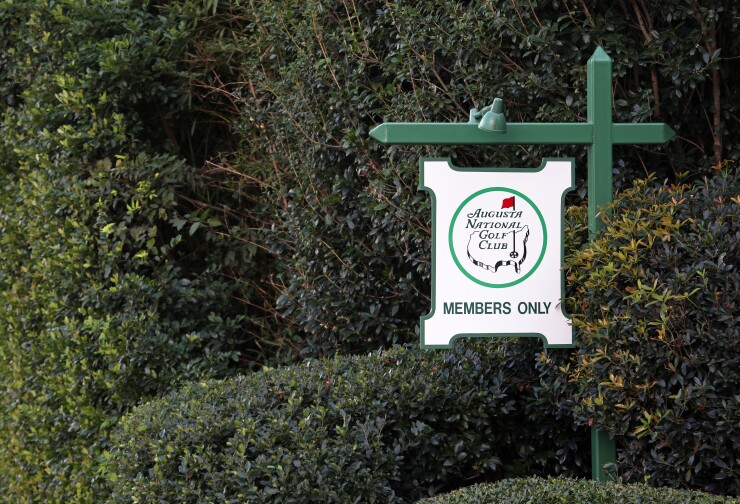The owners of an S-corporation drastically overshot the green in their use of the "Masters" deduction, according to a recent tax court decision providing guidance to financial advisors.
As long as they
Three households whose joint S-corporation owned franchise locations of fitness centers in Mississippi claimed combined deductions of $290,000 for rent that the company paid them for meetings held in their respective homes during a three-year span, according to the Aug. 14 decision in the tax court case,
Read more:
The case offers a helpful reminder to advisors about the tax exemption, said Alexis Gallati, an enrolled agent who is the founder of Knoxville, Tennessee-based
"You obviously have to do fair rental rates," Gallati said. "You have to make sure to do proper research and substantiate where you came up with your rental number as well."
Since the taxpayers were using their homes for meetings about their fitness centers, they should have documented "the business purpose" by keeping minutes of their discussions and other paper trails, she said.
Read more:
Agendas or calendars could have added to the evidence as well, Senior Judge Joseph Robert Goeke noted in the decision. The IRS revenue agent's calculation of a rent of $500 per meeting was "actually generous," considering that they didn't take up the whole homes for an entire day, Goeke wrote. While the S-corporation paid the households between $3,000 to $4,000 per meeting based on area rental rates of $1.83 per square foot against the common areas of their homes, the IRS agent found those prices unreasonable, according to the judge.
Goeke agreed with the agent's finding "that it seems that petitioners adopted a tax savings scheme to distribute [the S-corporation's] earnings to petitioners through purported rent payments, claim rent deductions and exclude the rent from their gross income," he wrote.
"Petitioners have not presented any written documentation such as minutes, agendas, or calendars showing that all the claimed meetings occurred during the years at issue to substantiate rent deductions of [the company]," Goeke said. "Furthermore, we find that petitioners' testimony was not credible as to the frequency of meetings during the years at issue. Their testimony was inconsistent and included testimony that petitioners did not recall the number of meetings that took place. [The company] deducted rent expenses for three meetings per month, once at each residence. Petitioners have not established that meetings occurred at that frequency."
Read more:
The decision demonstrates the "crucial principle" that provisions of the Internal Revenue Code "don't operate in isolation," certified public accountant Ed Zollars wrote on the Kaplan Financial Education
"What exacerbated the situation for the taxpayers in this case was the related-party nature of the transaction," Zollars said. "When the same individuals have control over both the entity paying the rent and the entity receiving the rent, there's an inherent potential for abuse. Such transactions are often viewed with skepticism by the IRS and the courts, as they can be manipulated to siphon off corporate profits or to create deductions where they wouldn't normally exist."






